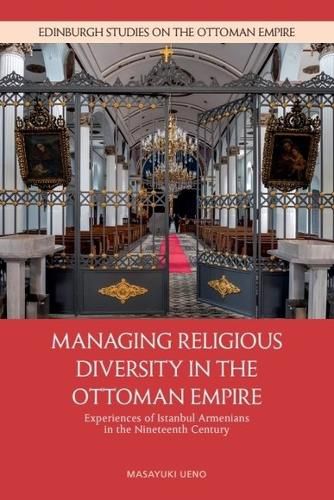Readings Newsletter
Become a Readings Member to make your shopping experience even easier.
Sign in or sign up for free!
You’re not far away from qualifying for FREE standard shipping within Australia
You’ve qualified for FREE standard shipping within Australia
The cart is loading…






This book makes extensive use of Ottoman archival documents and Armenian sources to examine the changing arrangements between the Ottoman state and non-Muslim religious authorities from the seventeenth to the nineteenth centuries, focusing on Armenians, the second-largest non-Muslim community in the empire. Specifically, it discusses how the ruling circles of the empire reinforced their reliance on non-Muslim religious authorities at the turn of the eighteenth century, and attempted to limit the influence of non-Muslim clergymen and restrict the scope of non-Muslim communal activity from the mid-nineteenth century onwards. The book also highlights the responses of the Armenian lay and ecclesiastical elites in Istanbul, who did not sit back and watch as their rights and privileges were curtailed. Rather, they sought ways to protect and even expand their collective rights and find their place in the multireligious empire, both as individuals and as members of a religious community.
$9.00 standard shipping within Australia
FREE standard shipping within Australia for orders over $100.00
Express & International shipping calculated at checkout
This book makes extensive use of Ottoman archival documents and Armenian sources to examine the changing arrangements between the Ottoman state and non-Muslim religious authorities from the seventeenth to the nineteenth centuries, focusing on Armenians, the second-largest non-Muslim community in the empire. Specifically, it discusses how the ruling circles of the empire reinforced their reliance on non-Muslim religious authorities at the turn of the eighteenth century, and attempted to limit the influence of non-Muslim clergymen and restrict the scope of non-Muslim communal activity from the mid-nineteenth century onwards. The book also highlights the responses of the Armenian lay and ecclesiastical elites in Istanbul, who did not sit back and watch as their rights and privileges were curtailed. Rather, they sought ways to protect and even expand their collective rights and find their place in the multireligious empire, both as individuals and as members of a religious community.